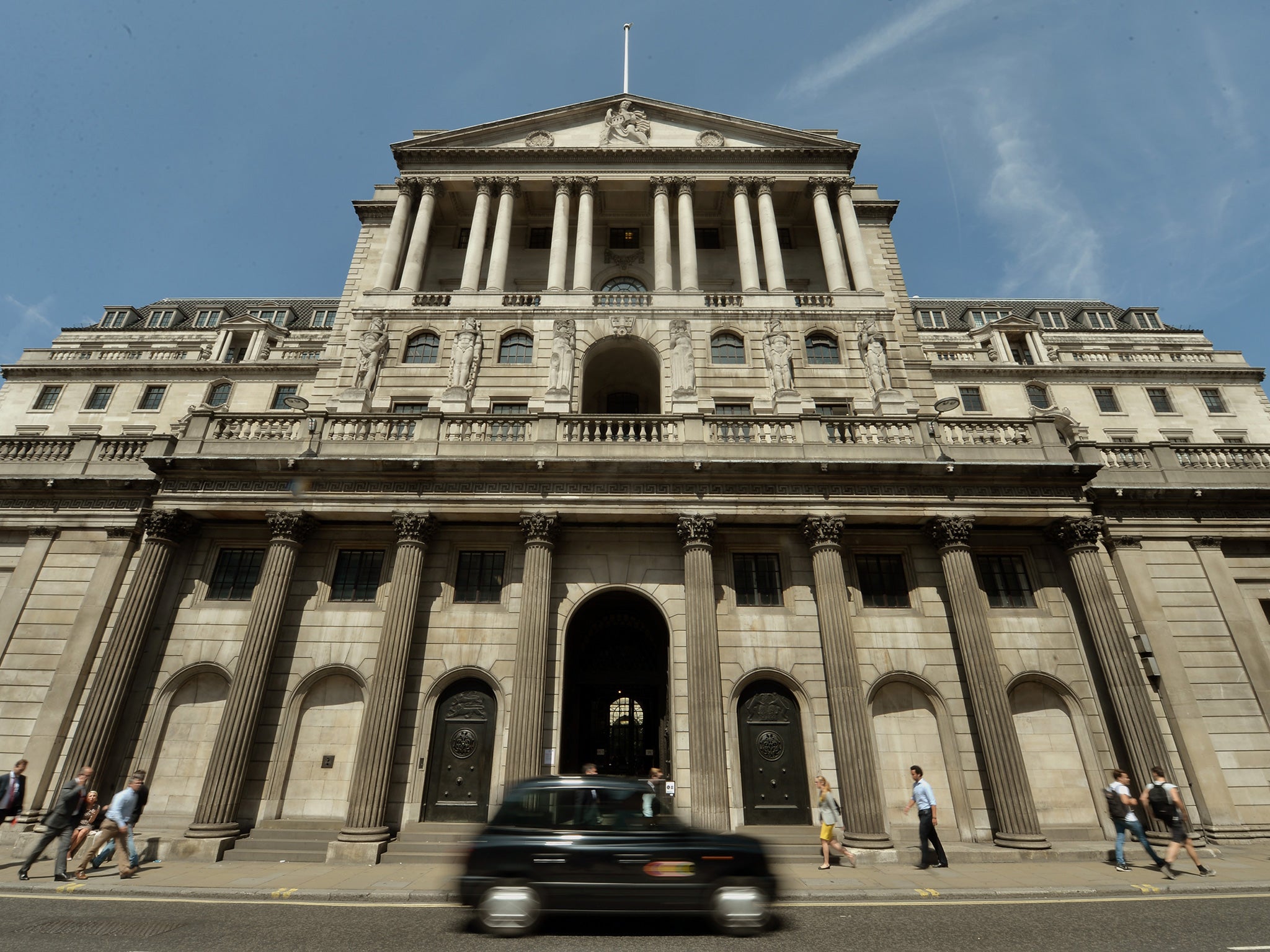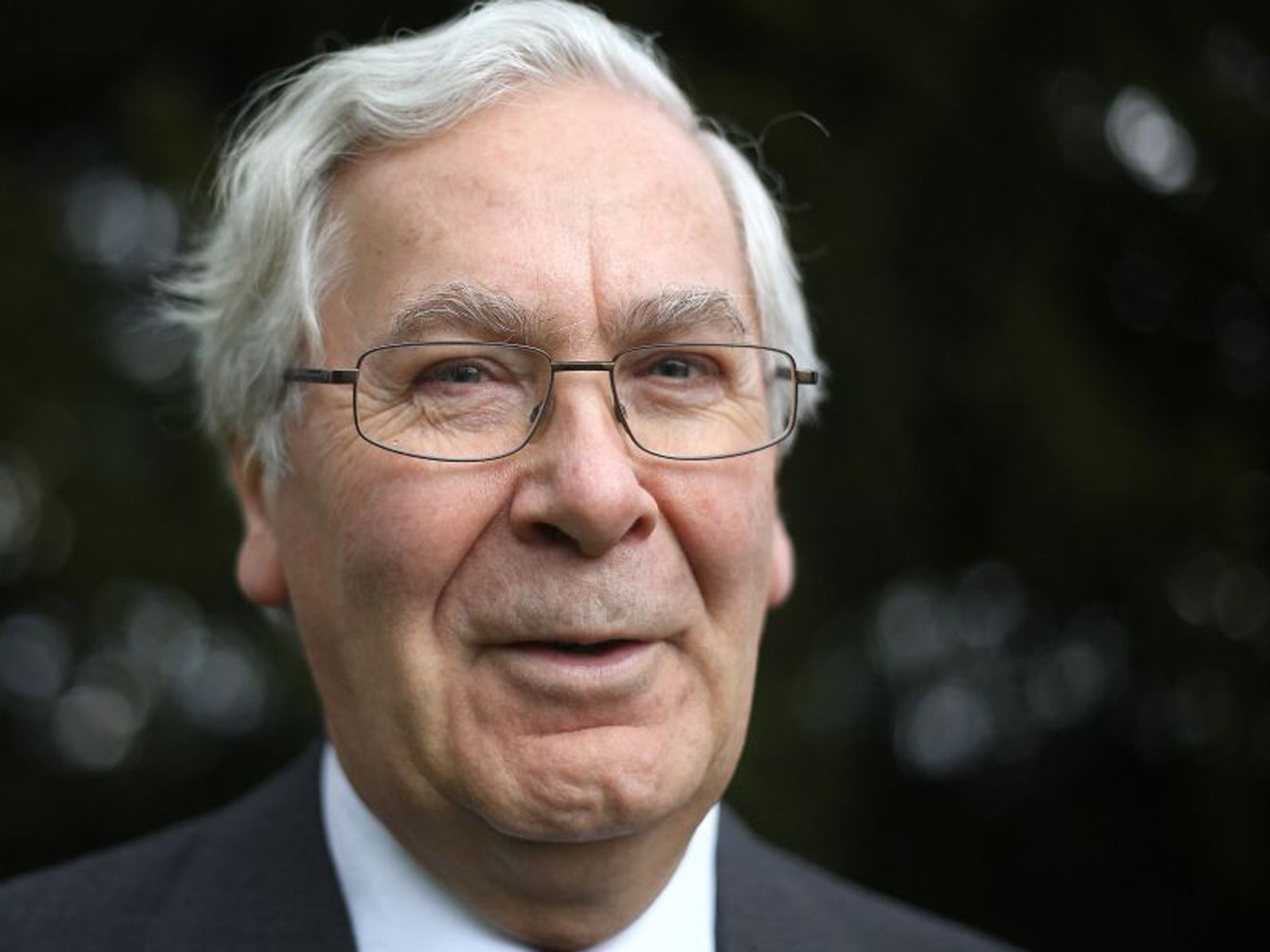Banks face another crash if they do not reform, warns Lord King
Financial systems need overhaul to avoid repeat of 2008, says former Governor of BoE

Your support helps us to tell the story
From reproductive rights to climate change to Big Tech, The Independent is on the ground when the story is developing. Whether it's investigating the financials of Elon Musk's pro-Trump PAC or producing our latest documentary, 'The A Word', which shines a light on the American women fighting for reproductive rights, we know how important it is to parse out the facts from the messaging.
At such a critical moment in US history, we need reporters on the ground. Your donation allows us to keep sending journalists to speak to both sides of the story.
The Independent is trusted by Americans across the entire political spectrum. And unlike many other quality news outlets, we choose not to lock Americans out of our reporting and analysis with paywalls. We believe quality journalism should be available to everyone, paid for by those who can afford it.
Your support makes all the difference.Another financial crisis is certain unless banks and governments reform financial systems across the globe, according to the former Governor of the Bank of England.
Lord King, who headed the Bank of England between 2003 and 2013, added that another crash will come “sooner rather than later” as he claimed the faults leading up to the 2008 credit crunch were the result of the system rather than greedy bankers. He made the sensational claims in a new book The End Of Alchemy: Money, Banking And The Future Of The Global Economy, adding: “frenetic activity among [regulators] cannot conceal the fact that nothing fundamental has changed.”
Lord King said in the book, serialised in The Telegraph, that more needed to be done to understand the reasons behind the 2008 crash. He wrote: “Without reform of the financial system, another crisis is certain, and the failure... to tackle the disequilibrium in the world economy makes it likely that it will come sooner rather than later.”
His argument goes that there was not enough equilibrium between world economies, with countries focusing too heavily on individual sectors – the US on housing, Germany on exports and commercial property in the UK.
In the lead up to the 2008 crisis, several countries were either spending too much – like the US – or spending too little – like Germany – creating an imbalance, according to Lord King. The comments come as stock markets around the world continue to fall amid low oil prices, the uncertainty over the UK’s membership of the EU, conflicts in the Middle East and China’s slowdown.
Many observers had expected interest rates to rise by now. Instead they have remained stubbornly flat and in some cases have fallen even further. However, Lord King said the problem was that central banks run the risk that any interest rate rise could slow things even further, even if they would have the benefit of creating more balance between spending and saving.

He said: “They [Central Banks] are in a prisoner’s dilemma: if any one of them were to raise interest rates, they would risk a slowing of growth. Whatever can be said about the world recovery since the crisis, it has been neither strong, nor sustainable, nor balanced. There seems to be very little political willingness to be bold.”
Part of the problem, he added, is that the current rules and regulations introduced following the crash are too complex for anyone to feasibly understand. He points out that the Prudential Regulation Authority and Financial Conduct Authority in the UK have rulebooks exceeding 10,000 pages, while the Dodd-Frank Act in the US runs to 2,300 pages. By comparison, the Glass-Steagall Act of 1933 runs to just 37 pages. He said: “Such complexity feeds on itself and brings the system into disrepute. Only a fundamental rethink of how we, as a society, organise our system of money and banking will prevent a repetition of the crisis that we experienced in 2008.”
The book, which will be released later this year, was inspired, according to Lord King, by a comment made to him by a senior Chinese central banker.
Lord King said he asked the banker what importance China attached to the industrial revolution, and was told: “We have learnt from the West about how competition and a market economy support industrialisation, but I don’t think you’ve quite got the hang of money and banking yet.”
Join our commenting forum
Join thought-provoking conversations, follow other Independent readers and see their replies
0Comments